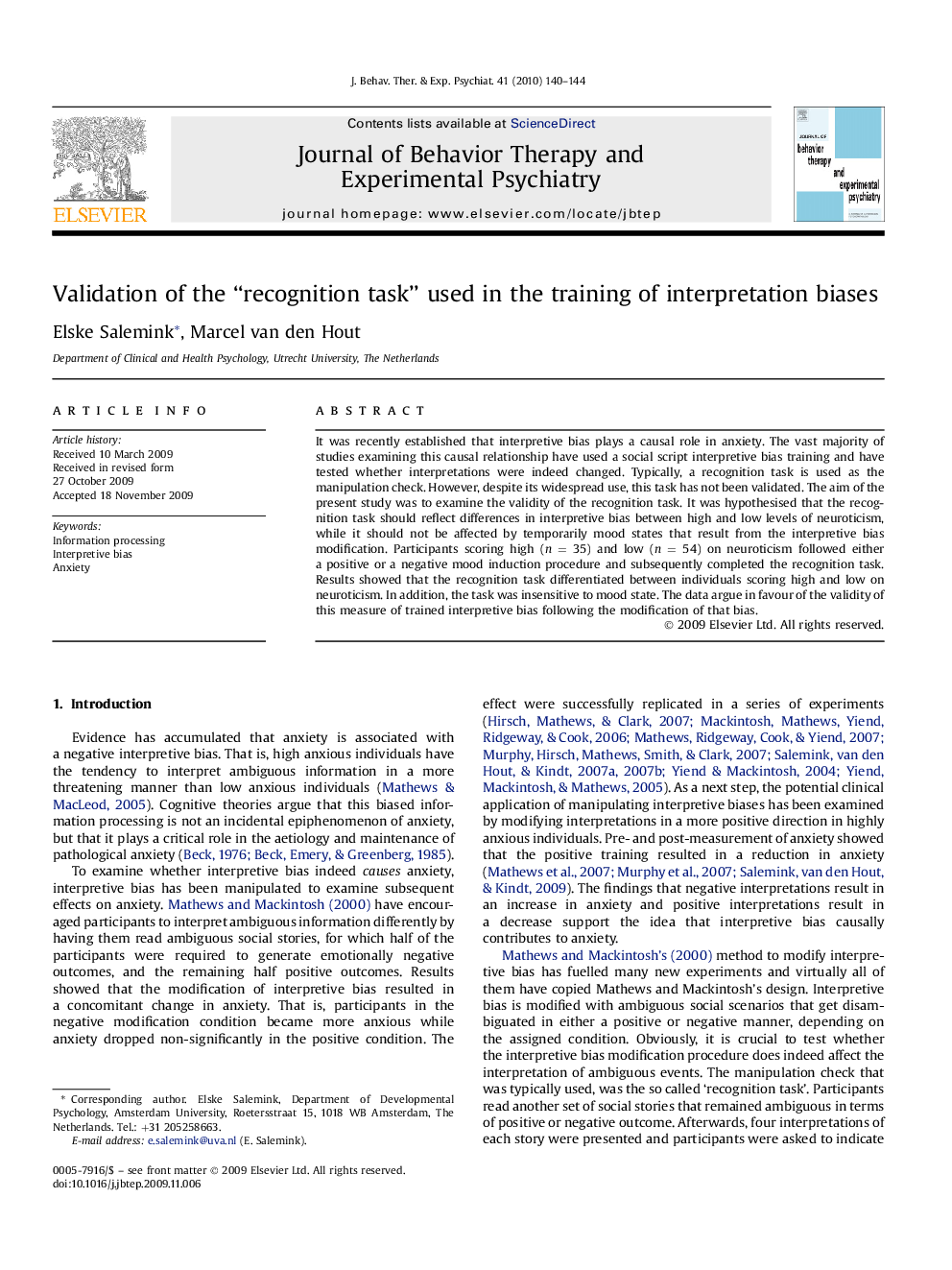| Article ID | Journal | Published Year | Pages | File Type |
|---|---|---|---|---|
| 910535 | Journal of Behavior Therapy and Experimental Psychiatry | 2010 | 5 Pages |
It was recently established that interpretive bias plays a causal role in anxiety. The vast majority of studies examining this causal relationship have used a social script interpretive bias training and have tested whether interpretations were indeed changed. Typically, a recognition task is used as the manipulation check. However, despite its widespread use, this task has not been validated. The aim of the present study was to examine the validity of the recognition task. It was hypothesised that the recognition task should reflect differences in interpretive bias between high and low levels of neuroticism, while it should not be affected by temporarily mood states that result from the interpretive bias modification. Participants scoring high (n = 35) and low (n = 54) on neuroticism followed either a positive or a negative mood induction procedure and subsequently completed the recognition task. Results showed that the recognition task differentiated between individuals scoring high and low on neuroticism. In addition, the task was insensitive to mood state. The data argue in favour of the validity of this measure of trained interpretive bias following the modification of that bias.
